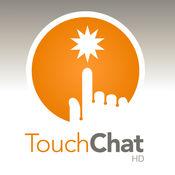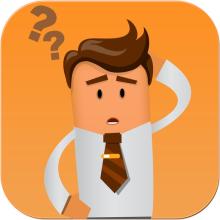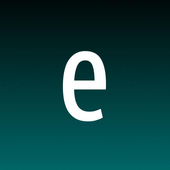
|
TouchChat HDSupplier: https://touchchatapp.com/apps |
7 vocabulary sets are provided:
4 Basic: 4 cell basic vocabulary set
Communication Journey Aphasia: 12 cell vocabulary set with adult & aphasia orientated vocab
MyCore: 108 cell categorised word bank for those with some literacy & good cognition & semantics
Spelling: 40 cell QWERTY keyboard with word prediction & phrase bank
VocabPC: 12 cell vocab set with activity vocab, category based vocab, carrier phrases
Multichat:15 cell vocab set in 3 versions: adult, adolescent, student. Contains activity vocab, category based vocab, questions & keyboard with word prediction
My Quickchat: 4, 8 & 12 cell layouts designed for AAC users. Adult & child versions available for each layout
3 versions available: Lite, full & full version with WordPower. Lite version doesn't speak & personalised pictures cannot be added - it's for evaluation purposes & couldn't really be used as a communication support
Other features:
Can be personalised with user's vocab & phrases. Pre-progammed vocab is American (e.g. purse for handbag)
User's photos can be used in place of symbols
Can use recorded or synthesised speech. UK voices can be downloaded
Easy & intuitive to program
Word prediction on the keyboard is not the best available
|
Easy to use independently: Yes Number of exercises: Version: American English Access: Touchscreen Record Results: Evaluation: Can author/customise |
| |
CuespeakSupplier: http://cuespeak.com |
Work on answering questions with help
Questions on current affairs, updated weekly
Work on asking questions and social phrases
Work on people’s names with video and spelling practice
Spelling with sounds
Letter spelling
Rhyme judgement
Reading tasks
Matching tasks
Sentence processing (e.g reversible sentence ordering)
Written & spoken sentence building
Semantic associations
Tasks for working on verbs in a sentence context
Conversation starters
Articulation: 5000+ videos of target words and phrases, including breakdown into individual syllables & phonemes
Features a communication props drawer with maps, drawing board, numbers, time
Multiple ways to create hierarchies (e.g. according to word length, sound, frequency, number of phonemes)
Video tutorials are provided to demonstrate how the app works & each exercise has its own tutorial to demonstrate how to complete the exercises
Can create multiple therapy sessions and can share sessions over internet
Error handling: Wrong answers are removed; the response is read aloud for the user to judge; contextual information is given
Prompts/cues: Closure cues; spoken word
Record results: Results are shown after the session with % of items completed correctly. Can request additional details about accuracy, speed and help requested. Results can also be emailed to the clinician.
Option to break up sentence level questions into chunks to support reading and listening
Comments:
- Can choose option for items to remain on the screen until the user moves onto the next exercise (i.e. no automatic scrolling onto the next item). This is useful when used in therapy to discuss the user’s response
- Advanced settings for SLT to designate exercise features for each exercise set
- Remote management/allocation of exercises and results
Free version, monthly subscription option, 1 & 3 year subscription options
|
Easy to use independently: Yes Number of exercises: Very Large Version: UK English Access: Touchscreen Record Results: Yes Evaluation: Developed with SLT, Free trial, Prompts/cues given, Record own speaking attempts, Remote exercise updates, Remote results access, Theory based, Tutorials |

|
Inference PicsSupplier: http://aptus-slt.com |
Exercises to encourage inference making from photos of real-life situations (places, events, feelings, situations etc.)
200 pictures are included in 7 exercise formats: what happened? Jobs, places, seasons, feelings, conversations & thoughts. For each photo, the user is asked to make an inference about the picture (the user can request 3 multiple choice options if they are struggling to make the inference). They are then asked 'How do you know?' (no prompts are given for this part of the exercise).
Could be used to ellicit spoken or written responses
Could be useful when working with people with TBI or as conversation topics
Results are not stored in-app but can be emailed each time an exercise is completed.
Results are reliant on the user correctly self-rating whether they were correct or not (if they are using the app independently)
|
Easy to use independently: Yes Number of exercises: Large Version: UK English, American English Access: Touchscreen Record Results: Yes Evaluation: Developed with SLT, Free trial, Remote results access |

|
BitsboardSupplier: http://bitsboard.com |
App designed for creating therapy exercises
Create 'boards' of vocab to practise and incorporate these into spelling games (anagrams, missing letters, word search, cross words) or semantic exercises (odd one out, sorting exercises) or sequencing exercises. Set up easy familiarisation activities for the user to familiarise themselves with the vocab items
The user can also record their speaking attempts
Suggested photos and voice recordings are provided but you can choose your own if you prefer
|
Easy to use independently: Yes Number of exercises: Unlimited Version: UK English, American English Access: Touchscreen Record Results: Yes Evaluation: Can author/customise, Free trial, Record own speaking attempts |

|
Advanced Reading TherapySupplier: http://tactustherapy.com/app/advanced-reading/ |
| Name of app | Advanced Reading Therapy |
| Type of exercises & brief description |
Paragraph level reading exercises 3 levels with 65-70 exercises in each Level 1 includes reading cards, letters, text messages, stories, articles and functional texts. 5 inferencing passages are also included. Texts range from 17 to 53 words. Level 2 includes letters, articles, jokes, stories, functional texts and book chapters. Texts range from 51 to 185 words. Level 3 includes letters, articles, stories, functional texts, jokes and book chapters. Texts range from 155 to 593 words. Font size can be adjusted The user can listen to individual words, sentences or the entire text to aid comprehension. They can also ask for a hint and the relevant sentence will be highlighted 3-5 multiple choice questions on the text are asked & the user can refer back to the text if required The user is asked to rate how well they understood each passage (this function can be disabled) A tutorial is provided to demonstrate how the app can be used A free trial is available through the Advanced Language Therapy Lite app |
| Error handling | None |
| Prompts/cues | The relevant sentence is highlighted if the user requests a hint. The user can opt to listen to as well as read the text. The user can go back & consult the text while answering the questions |
| Record results | Results are shown after the session with % of items understood correctly with/without cues. It also highlights the cues used (e.g. if the user requested a hint or needed to look back at the text). It also details the self-rating given by the user if this function is enabled. Results can be emailed to a designated address.
|
| Developer | www.tactustherapy.com |
| Supplier | App store |
| Comments/N.B | FREE TRIAL available with Advanced Reading Therapy Lite |
Supplier: Tactus
|
Easy to use independently: Yes Number of exercises: Large Version: UK English, American English Access: Touchscreen Record Results: Yes Evaluation: Developed with SLT, Free trial, Prompts/cues given, Remote results access, Tutorials |

|
Seeing AISupplier: https://www.microsoft.com/en-us/seeing-ai |
Free app which describes the world around you (designed for people with vision impairment)
Point the phone camera at:
- short typed or handwritten text (e.g. a greetings card) & it will speak it aloud
- whole documents & it will speak the text aloud
- barcodes & it will speak out the product name
- a scene & it will give an auditory description (e.g. busy street with people & cars)
- a person & it will describe them (e.g. a 40 year old, happy blonde woman). If the person has been saved in the user's photos, it will speak out their name.
- currency and it will speak out the amount
|
Easy to use independently: Yes Number of exercises: Version: UK English Access: Touchscreen Record Results: Evaluation: Free trial |

|
Envision AISupplier: https://play.google.com/store/apps/details?id=com.letsenvision.envisionai&hl=en… |
App which describes the world around you (designed for people with vision impairment)
Point the phone camera at:
- short typed or handwritten text (e.g. a greetings card) & it will speak it aloud
- whole documents & it will speak the text aloud
- barcodes & it will speak out the product name
- a scene & it will give an auditory description (e.g. busy street with people & cars)
NB there is a long delay before it detects and speaks out the text/scene
|
Easy to use independently: Yes Number of exercises: Version: UK English Access: Touchscreen Record Results: Evaluation: Free trial |

|
TippyTalk EDUSupplier: http://www.tippy-talk.com/ |
Customiseable app to enable the non-verbal/non-literate user to send text messages to designated communication partners
The user presses a sequence of 2 messages to be automatically sent by text to the communication partner of their choice. All messages are represented by a picture/photo (e.g. I need shopping, please get me some apples)
Pictures, text labels and spoken labels can all be customised
App can be modified remotely (i.e. SLT/carer can change messages on a desktop and it will be immediately available to the user on their tablet/phone)
|
Easy to use independently: Yes Number of exercises: Version: UK English, American English, Australian English Access: Touchscreen Record Results: Evaluation: Can author/customise, Free trial, Remote exercise updates |

|
NeuronUPSupplier: https://www.neuronup.com/en/ |
Web based suite of exercises designed for cognitive rehabilitation. Each activity has 2-5 levels of difficulty.
Language activities:
Auditory comprehension (true/fase) tasks, including some very high level activities
Written sequencing tasks where the user is required to put steps for an activity in order (3-16 steps, depending on the level)
Picture-adjective; picture-noun and picture-verb matching activities, including some very high level tasks
Functional, object-location matching tasks
Language based executive functioning activities:
Written decision-making tasks
Written reasoning of consquences tasks
There are also social cognition tasks including inferring facial expressions & inferring emotional reactions
Error handling: none
Prompts/cues: none
Record results: yes, and they can be accessed remotely
Free trial: yes, a 10 day trial is available
Comments: Latency is measured for most exercises. Although a large number of rehab areas are listed, some contain no activities (e.g. expression, naming, fluency, writing). Although reading activities are listed, it is simply matching digits to written numbers. Alot of the exercises rely on very good reading comprehension (e.g. decision making, time estimation, reasoning of consequences, task sequencing). On some activities, the user is unable to amend their response before submitting it (e.g. on task sequencing exercises).
Suppliers: https://www.neuronup.com/en
|
Easy to use independently: Yes Number of exercises: Large Version: American English Access: Click & Drag, Mouse, Touchscreen Record Results: Yes Evaluation: Free trial, Remote exercise updates, Remote results access, Tutorials |

|
Advanced Writing TherapySupplier: https://tactustherapy.com/app/advanced-writing/ |
4 different spelling & writing exercises from letter to sentence level:
1. Matching letters to sounds
12 exercises incorporating letter names, consonants, vowels & blends. The user can also record their spoken attempt if they wish to practise saying the sound or repeating the sound from a model.
2. Spelling words to dictation
Select nouns, verbs, adjectives, adverbs, pronouns, function words, irregular words or words with specific vowels for 300 common words. Hear the word spoken in isolation, then in a sentence. The user must type the word but can choose a list of 4 options if they are stuck. The user can also record their spoken attempt if they wish to practise saying the word or repeating the word from a model.
3. Typing to dictation
Chose from 1-8 word sentences. The user must type the words dictated. If they struggle, they can ask to see the word/sentence & then try again or they can keep the sentence on screen to copy. Their errors remain listed under the stimuli so they can check back if they've made the same mistake.The user can also record their spoken attempt if they wish to practise saying the sound or repeating the sound from a model
4. Writing sentences & paragraphs
Choose a focus (e.g. nouns, verbs, adjectives, function words, personal information, text messages, taking notes, making lists, writing cards, emails, letters, personal information, directions). A key word is then given for the person to make a sentence with. If they struggle, they can ask for a word bank to help them construct their sentence. Once they have constructed a sentence, the written sentence is read aloud for the user to decide whether they would like to edit it or whether it is correct. The user can also record a spoken attempt at reading their sentence aloud or repeating it after the text to speech model. The app does not say whether the sentence is correct or not, the user must judge this themselves
Error handling: None - an auditory sound is given to indicate correct or incorrect responses but no error handling is given
Prompts/cues: Pictorial, auditory & written cues can be requested.
Record results: a score is given at the end of each exercise (apart from sentence/paragraph writing exercises where no results are given) and results can be emailed. The user cannot look back at previous results within the app
Free trial: yes, free trial available through Advanced Language Therapy Lite app
Comments: On-screen, aphasia friendly instructions on how to use the app are provided. Comprehensive written instructions are also provided however these would not be accessible to someone with compromised reading skills. Chose upper or lower case presentation, 3 levels of exercise (easy, medium, hard) and a large bank of stimuli
Supplier: Tactus
|
Easy to use independently: Yes Number of exercises: Large Version: American English Access: Touchscreen Record Results: Yes Evaluation: Developed with SLT, Free trial, Prompts/cues given, Record own speaking attempts, Remote results access |

 The
The